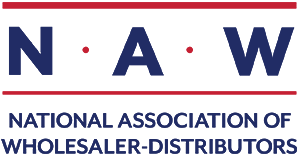March 24, 2020
An Update from NAW Government Relations Team - 3.24
Senate Continues Negotiations for Second COVID-19 Emergency Stimulus Bill
As of this writing, the prospects for Senate action on the almost-2-trillion-dollar rescue bill remain uncertain. Yesterday the Senate voted on a “cloture motion” to bring to a close debate on a procedural motion to even allow floor consideration of the bill. That vote required 60 votes and failed with only 47 votes to “invoke cloture.” Every Democrat voted against that motion, so consideration remain stalled.
Today the Senate voted again on whether to take up the bill, and perhaps as a glimmer of hope, one Democrat Senator, Doug Jones of Alabama, voted with the Republicans to allow the bill to move. But they remained well short of the necessary 60 votes.
Debate on the Senate floor has been heated and at times truly emotional. Democrats continue to argue that there is too much unrestricted aid to corporations in the bill and insufficient aid to individuals and families; Republicans argue that there is about $1.3 trillion in aid to individuals and that if those individuals want to have jobs when this is over, businesses have to survive.
There are repeated complaints from Senate Republicans that a bi-partisan compromise was almost achieved in the Senate late last week, until House Speaker Pelosi joined the negotiations and effectively broke them up. The Speaker provided ammunition for their complaints today when, in the middle of the Senate meltdown, she introduced a whole new 1,400 page bill. Remarkably, and to the great anger of Senate Republicans, the Speaker’s bill included a laundry list of Democrat policy priorities completely unrelated to the current crisis. Just a sample of the provisions in her bill:
- Required early voting and federally mandated same day voter registration
- Tax credits for alternative energy development
- Publication of corporate pay statistics by race and race statistics for all corporate boards
- Bailout of the US Postal Service
- Multiple provisions to increase union power
- Federal $15 minimum wage
- New environmental controls on airlines
- Publication and reporting of greenhouse gas statistics for individual flights
- Requiring labor representation on corporate boards
- Collective bargaining for Federal Workers
The #2 person in the House Democratic Leadership, Jim Clyburn, described the national crisis today as “a tremendous opportunity to restructure things to fit our vision.” That would seem to be what the Speaker is advocating.
As of this evening, negotiations continue among Senate Republican and Democratic leaders and Treasury Secretary Mnuchin. Democrats’ primary arguments against the bill are that the provisions to help provide loans and liquidity to businesses are too generous and not transparent. Republicans have repeatedly agreed to Democrat proposals to tighten the procedures governing corporate loans made available under the “stabilization fund” in the bill – to forbid stock buybacks for example – but no Republican concessions have been sufficient to get Democrats on board.
This situation is very fluid and could change at any moment. There is still a possibility that a Senate agreement could be reached tonight – negotiators will be at work for hours into the evening.
We will update you again tomorrow as warranted, but will leave you this evening with the pithy comments made on the Senate floor this evening by Louisiana Senator John Kennedy:
“This country was founded by geniuses but it’s being run by a bunch of idiots.”
“You know what the American people are thinking right now? They’re thinking that the brain is an amazing organ. It starts working in a mother’s womb and it doesn’t stop working till you get elected to Congress.”
NAW Asks Governors to Adopt CISA Guidance
Yesterday, NAW called on all state Governors to adopt the Cybersecurity & Infrastructure Security Agency (CISA) guidelines on identification of critical infrastructure business/workers, should they need to limit movement with within their states to fight the spread of COVID-19.
Many states have issued stay at home orders or other actions to limit their citizens movements to fight COVID-19. Many of the early actions were well intentioned but adversely impacted operations to the nation’s supply chain. By adopting uniform standards, companies who operate in multiple states will be better equipped to get product to where it is needed most as well as help to eliminate the confusion of navigating a complex web of various state regulations.
Click here to view the letter.
How to Report Suspected COVID-19 Fraud
Today, U.S. Attorney Peter G. Strasser of the District of Louisiana, urged the public to report any suspected fraud schemes related to COVID-19 (the Coronavirus).
Click here to see the press release.
Some examples of these schemes include:
- Individuals and businesses selling fake cures for COVID-19 online and engaging in other forms of fraud.
- Phishing emails from entities posing as the World Health Organization or the Centers for Disease Control and Prevention.
- Malicious websites and apps that appear to share Coronavirus-related information to gain and lock access to your devices until payment is received.
- Seeking donations fraudulently for illegitimate or non-existent charitable organizations.
- Medical providers obtaining patient information for COVID-19 testing and then using that information to fraudulently bill for other tests and procedures.
You can report suspected fraud by calling the National Center for Disaster Fraud (NCDF) hotline (1-866-720-5721) or send an email to the NCDF at: disaster@leo.gov.

Jade West, Chief Government Relations Officer
Blake Adam, Vice President-Government Relations
Seth Waugh, Associate Vice President-Government Relations
National Association of Wholesaler-Distributors